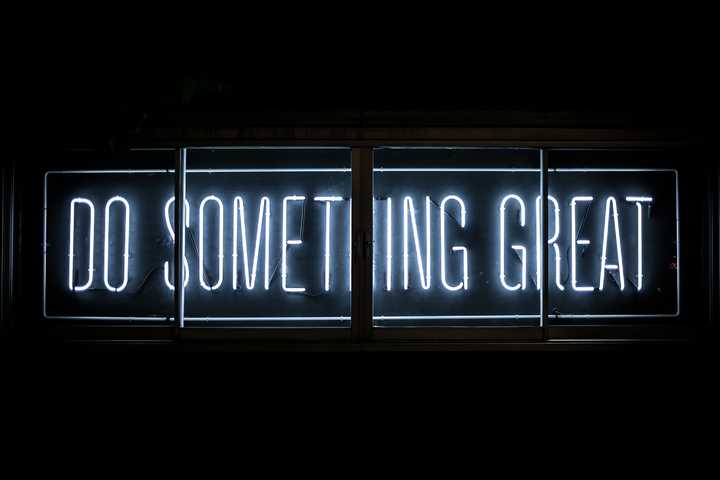77% of the industry leaders surveyed by the authors of Who: The A Method of Hiring said the best source of A players is referrals. Keep in mind we’re talking about the source for the best hires. Not just any hire. Quality. Not quantity. You can get a lot of candidates by advertising a role. But they are unlikely going to be your best candidates. The reason is you’re entirely relying on happenstance.
You post a job ad when the need arises. You spend about 90 days looking for a hire. By the end of the 90 days, you realize the candidates you’ve seen so far are nowhere near your definition of an A player. But you are under pressure to fill the position lest you lose it to more urgent needs. You finally settle on the best candidate among the pool of talent you have access to at the time.
A couple of weeks later, a friend tells you about this coworker who wants to move to your city. She’s an A player. She’s been thinking about moving closer to her family and friends since last year. You wish you had waited. You wish you knew about this two weeks ago.
This is why it's important to start building relationships with potential candidates long before you have an opening.
Always Be Sourcing
It takes time to build up relationships with potential candidates. So, reach out and build a connection early on. Nurture the relationship. Even if it takes years.
In terms of effort, Stripe’s recruiting was absolutely relentless. On the front of the pipeline this meant investing in potential candidates that wouldn’t apply for years, through genuine 1:1 relationships as well as many small events that introduce Stripe and its team.
- Mark McGranaghan
One advantage of doing this is not many companies do. So, merely doing this already helps you stand out among other employers.
So, how do you go about sourcing potential candidates? There are no shortcuts. If you have yet to build a wide network, the best thing you can do is to start now. Reach out to your colleagues and ask them to introduce the best people they know. Setup a 30-minute slot with the candidate and start talking. You'll be spending a lot of time talking to candidates. So, schedule this on your calendar on a recurring basis.
The Who recommends a simple yet effective script:
Sue recommended that you and I connect. I understand you are great at what you do. I am always on the lookout for talented people and would love the chance to get to know you. Even if you are perfectly content in your current job, I'd love to introduce myself and hear about your career interests.
When talking to candidates, don't jump into an interview mode. Because this is not an interview. Just be curious. Learn about the candidate. What her career interests are. Ask her to tell you about some of her recent accomplishments. Where she'd like to go from here. If there are opportunities to help her out, whether it's an introduction to someone who can help or provide mentorship, offer the help. Give before you ask. Reciprocity can be a very powerful tool.
Schedule a follow-up on your calendar for candidates you'd like to continue to build a relationship with. This can be on a quarterly or a biannual cadence. Recurring check-ins is what builds the relationship. Check-ins can be short, personal messages to the candidate just to see how things are going. Or if necessary, you can both jump on a call for a longer conversation. A longer conversation at least once a year makes sense.
As you talk to candidates, make sure you jot down notes about each one. You'll be talking to a lot of candidates. The last thing you want is to come across as impersonal and uninterested when you're trying to build a long term relationship. Imagine when you speak with the candidate again and you can't remember the candidate said she was going to move to Seattle. Take detailed notes.
Finally, before you end the conversation, ask the candidate, "Who are the most talented people you know that I should talk to?" This simple follow-up will help you grow your network exponentially.
Outbound Sourcing
Referrals are a form of outbound sourcing. There are several sources for outreach. They are listed below in order of effectiveness.
Referrals from Your Network
When sourcing, the best place to start is your personal and professional network. Most of us don't have a broad network. But most of us know at least 10 people. Ask your current and former colleagues to introduce you to the best 10 people they know. Ask your acquaintances in your professional network to do the same. Pretty soon you'll have more than you can talk to in a year.
Your network is most effective because you know the folks you're reaching out to. So, at least the quality of the folks you know may reflect the quality of the candidates they refer. Just by asking for the most talented people they know, your network will be selective in referring the candidates to you. Because their choices are a reflection of their perception of quality.
Referrals from Employees
The next network to tap for referrals is your employees' network. This is practiced broadly. Companies often offer referral bonuses should the candidate get hired. This is quite effective if morale is high. Like the Net Promoter Score (NPS) used to measure customer satisfaction, the willingness of employees to refer friends can be used to measure employee morale. If you're not getting referrals from employees despite a juicy referral bonus, you may need to fix the morale problem first.
Employee referrals have been a source of many quality hires in my experience. I've seen two sets of siblings hired through employee referrals. Some employees have very strong networks. When they find a company they like, their network follows them. I've seen this happen a few times as well. This speaks to the camaraderie they built up with their network.
Referrals from Friends of The Firm
I haven't done this myself. I've seen how this worked for startups with advisory boards. If you're a startup founder with a network of VCs, you've probably seen tremendous success from this strategy. Many VCs have large networks of the best people in many industries. This tends to work well for key executive or leadership roles.
But what about the no-less-important engineering roles? One way to do this is to offer referral bonuses to partner companies you hold in high regard. Perhaps you use Kafka in your tech stack. Reach out to your vendor and ask them to refer their best candidates for relevant roles.
External Recruiters
External recruiters have gotten a bad rep due to the misbehaviors of the less reputable agencies. We've all had our fair share of spam for irrelevant roles. But there are agencies that have built up a reputation for themselves such that companies seek out their services to find the best candidates. Unfortunately, most of them focus on executive roles because it takes a lot of work to understand your needs, source and interview candidates before they bring them to you.
When working with external recruiters, be explicitly clear about who you are looking for. The best agencies take their time to interview you before they begin sourcing. It does take some calibration to get to the quality of candidates who will get further in your funnel. Provide clear feedback to the agencies when a candidate isn't working out. This helps the calibration. If you do find an agency that consistently brings in strong candidates, you should double down on your efforts with that agency.
Inbound Sourcing
So far, we've talked about outbound sourcing which involves outreach to candidates. Inbound sourcing is a way to get candidates to apply to your roles voluntarily. The most popular inbound sourcing method is a job posting. But I talked about how this is not the best way to get the best candidates at the beginning of this post.
A more effective way to source inbound candidates is to create a mind share for your engineering brand. Like building a network, this takes time and a lot of effort. Especially, if you don't have an engineering brand to begin with. But startups build up their engineering brands from nothing all the time. So, it's not impossible.
Building an engineering brand has no prerequisites. It only requires commitment. The way I think about it is the same way I'd build a product brand. How do I get my brand in front of candidates? What values do I want my brand to be associated with? How do I want candidates to perceive my brand? How do I measure the success of my brand building campaigns?
There are many ways to build your engineering brand. One way is to send your engineers to speak at conferences. Start exposing candidates to your engineering brand. Tell the world what your engineering team does. Get the candidates excited about the mission and the people you have. By speaking at conferences, your engineers and your brand will start to establish themselves as an authoritative voice in your industry. Again, not many companies are doing this. So, just by doing this you already stand out in the crowd.
Don't stop at conferences. Hold regular meetups, DevJams, hackathons, contests, and events in your local community to build a local brand. Invite local candidates to participate in these. Your brand will always be first in mind when they are looking for the next move. Or if they know someone who's looking.
Another way to build a strong engineering brand is to write an engineering blog. Get your engineers to tell stories about the projects they are most proud of. Or their experience troubleshooting a nagging production bug that took ingenious spelunking to arrive at the root causes. Showcase some of your engineer profiles to introduce the people you have. Candidates choose who they want to work with.
A less popular, but seemingly effective option is to write books. Basecamp wrote a few books. The books describe Basecamp's philosophy and how they operate. They are opinionated. Their philosophy and culture may not work for everyone. But they clearly worked very well for Basecamp. Reed Hastings published his legendary Freedom and Responsibility slide deck. And Stripe publishes a magazine called Increment. The common theme across these publications is they offer a peek into the culture of your company. How you think. How proud your engineering team is working at your company. The caliber of the people you have. And how the engineering community perceive your brand based on the guests who contribute to your publications.
But like all things, you need to measure what matters in order to improve. A good measure is how likely it is for anyone to refer someone to work at your company. Much like NPS. A simple survey on your engineering blog that asks this question can give a pretty good idea of how you're doing.
I'll cover more about building an engineering brand in a later post. In the meantime, if you are someone I oughta know and don't yet or know someone I should, please hit me up on LinkedIn or @cyyapye on Twitter.

